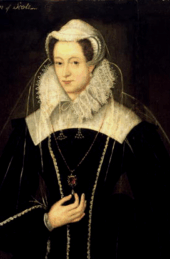In 1879 a group of eleven young people descended on the quiet Russian spa town of Lipetsk, over 700 miles south of St Petersburg. The ten men and one woman stood out from the geriatric invalids who comprised the resort’s usual visitors, thanks to their youth, physical fitness and good looks.
They posed as patients, even taking time out to lie in baths filled with Lipetsk’s famous healing mud. But they weren’t here for their health. They believed it was Russia that was sick. And they saw it as their mission to cut out the cancer that was destroying their country. The name of that cancer was Tsar Alexander II.
The eleven individuals were a diverse bunch, united by their hatred of the tsar and their impatience at the lack of progress made by Land and Freedom, the radical party they had recently broken away from.
The group included Zhelyabov, the son of a serf and former law student expelled for participating in riots. At the other end of the social scale was Kolotkevich, a nobleman described as “the ideologue of terrorism”.
Goldenberg was the son of a Jewish merchant. He had earned his terror credentials by assassinating the governor general of Kharkiv. Frolenko was a university dropout who had helped break political prisoners out of jail.
Shiryaev was an aristocratic dandy and expert on electricity. In the future he would become one of the terrorists’ lead bomb-makers.
The woman was Maria Oshanina. The daughter of a wealthy landowner, she was both strikingly beautiful and, by her own admission, thirsty for “the blood of the oppressors.” Also in Lipetsk was her husband Barannikov, known as the Avenging Angel after killing the chief of gendarmes Mezentsov.
Morozov was the son of a landowner. His parents had been murdered in an explosion set by the family butler after his father had seduced the man’s wife. Tikhomirov was the intellectual of the group. Although he was only 27, his nickname was “The Old Man.”
The main instigators of the meeting were Mikhailov, nicknamed “Robespierre”, and Kvyatkovsky, the son of a Siberian gold prospector.
The group passed their time peacefully enough, enjoying the leisure facilities that the spa town had to offer. They went boating on a reservoir known locally as Antichrist Pond. The Antichrist in question was Peter the Great, unpopular because he had swept away many old traditions and ruthlessly put down opposition.
Then, at a picnic party in a secluded forest on the outskirts of Lipetsk, the group got down to business. It was here that The People’s Will was founded, a new party based on statutes drawn up by Mikhailov and Kyatkovsky. As they put it in their manifesto: “Since the Government, in its battle against us, not only exiles, imprisons, and kills us, but also confiscates our property, we consider ourselves entitled to return the favour.”
Their political strategy was one of violence and terror. Their main political weapon would be dynamite.
At a further meeting, they moved on to discuss the primary objective of the new party, the overthrow of the tsarist regime. Effectively, they put the tsar on trial, reading out a long charge sheet against him.
In Alexander’s defence, mention was made of the reforms he had introduced earlier in his reign. This included the emancipation of the serfs – men and women like Zhelyabov’s father. The question was asked, do these good works outweigh “all the evil he has already done and will do in the future?” The case for clemency was put to the vote and resoundingly defeated.
The tsar was sentenced to death in absentia.
It would take nearly two years and several unsuccessful assassination attempts before that sentence was carried out, when People’s Will activists hurled two bombs at Alexander in St Petersburg. The first killed one of the tsar’s Cossack bodyguards. The second fatally wounded the tsar.
By 1881, when Alexander II was assassinated, the People’s Will had grown from a founding committee of eleven to a movement of 500 registered members, though the number of sympathisers was estimated to be at least ten times more, with cells in towns and cities across Russia.
The secret congress inspired me to create a fictional group of terrorists who come to Lipetsk in 1880 on a deadly mission. You can read what happens in my new book, Death Of A Princess.
R.N. Morris’s new book, Death Of A Princess is out now, published by Sharpe Books.







